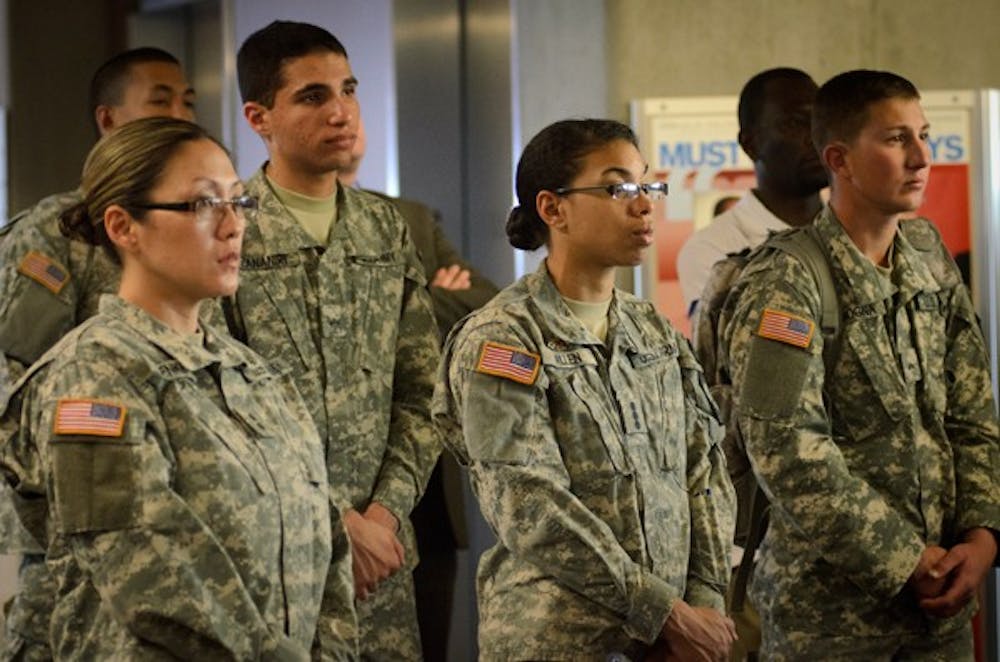Though conditions have improved since people spat on soldiers returning from the Vietnam war, the United States’ highest ranking military official said a disconnect still exists between the military and civilian worlds.
Adm. Mike Mullen, chairman of the Joint Chiefs of Staff, spoke Thursday about the issues veterans face as they transition back to civilian life. Mullen addressed a crowd of about 200 at the Walter Cronkite School of Journalism and Mass Communication on the Downtown campus.He said the transition away from the rigid structure of military life can be challenging for some, and when the government falls short of continuing a positive connection with veterans, these difficulties are often amplified.
“Veterans bring home a potential that is unimaginable for the future of our country,” Mullen said. “It’s ironic that I live in a system … where I spend a lot of time, money and effort recruiting and training them when they’re in the military. But when their time comes up, and they have made the decision to leave the military, I hand them a duffel bag and say ‘Have a nice life.’”
Mullen said he doesn’t believe the current model for treating veterans works well, and he is working to change it by promoting interconnectivity between the government, communities, and veterans and their dependents.
“What I am trying to do is create a connection between the community and us, and that’s why I am here today,” Mullen said.
Mullen also praised the support ASU gives to veterans.
ASU frequently assists veterans by offering them in-state tuition and free occupational assistance at the Career Preparation Center.
Justin Finnerty, director of the Career Preparation Center at ASU’s Polytechnic campus, said in an e-mail that ASU helps military veteran students identify work skills developed in the military that are useful in virtually any work environment.
“Primarily due to the more rigid, structured and prescribed nature of the military environment, released service members are in some cases not prepared to think outside the box … and come up with creative ways to market the wide range of valuable skills they acquired while in the service,” Finnerty said in an e-mail.
Senior ASU Career Services specialist Doug DeVoe said when a veteran asks for help, career advisers assist chiefly though three mediums: résumé writing, interview preparation and networking.
DeVoe said he first identifies the career field a veteran wants to venture into before tackling a résumé.
“The first thing I talk about is to see if they have taken time to generate options on what they can do with their lives after military service,” DeVoe said. “Anything is possible for them; sometimes they know what they want to do and others have no clue.”
When assisting a veteran, “much of the work has been centered on translating their military language that has been developed over their years of service into more common civilian language that college recruiters and human resource professionals are looking for,” Finnerty said.
Mullen said he hopes employers are not turned off by the public perception of veterans.
“I hope that people will engage our veterans and see them for the quality of people they are,” Mullen said. “Your organization and your institution is going to be a whole lot better off embracing these young people and their families instead of staying away from them.”
Reach the reporter at tdmcknig@asu.edu





